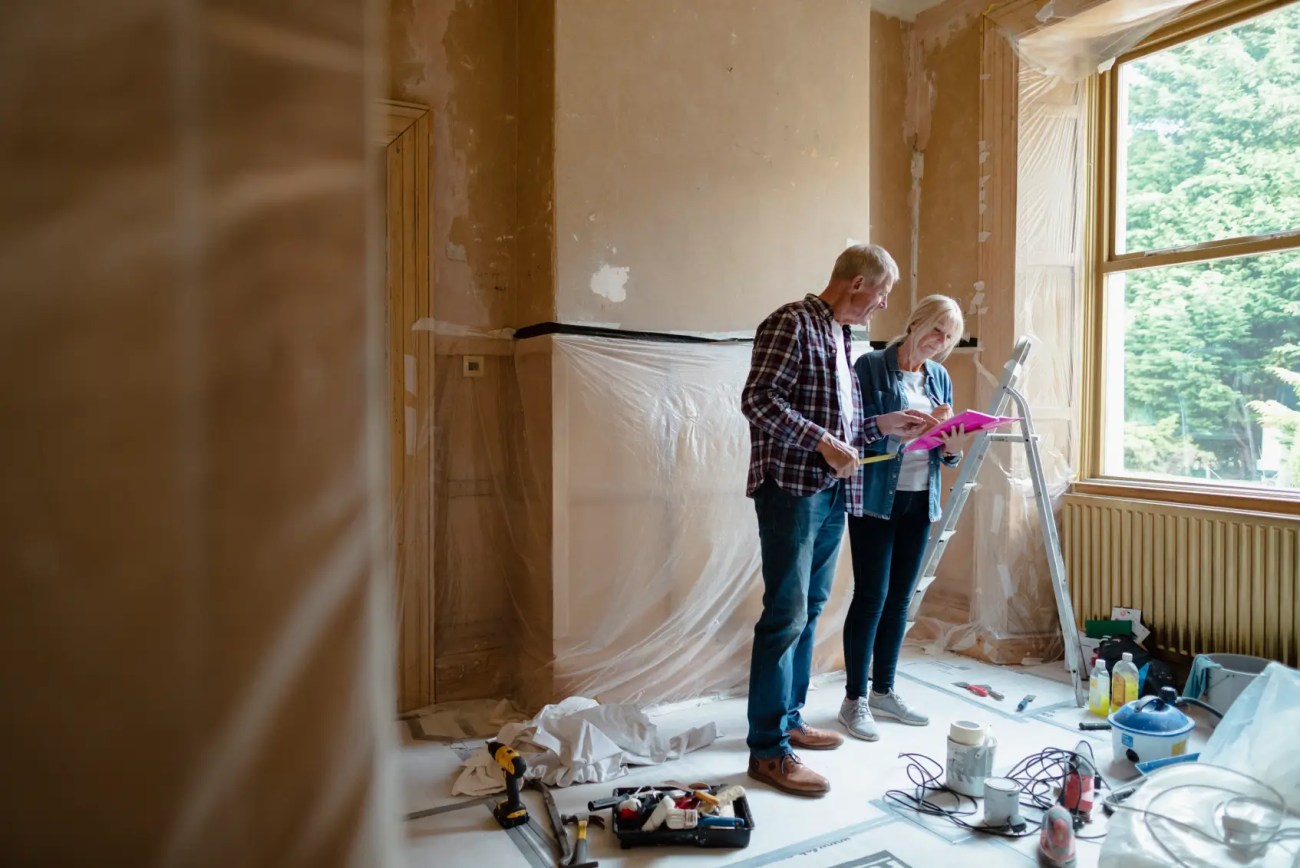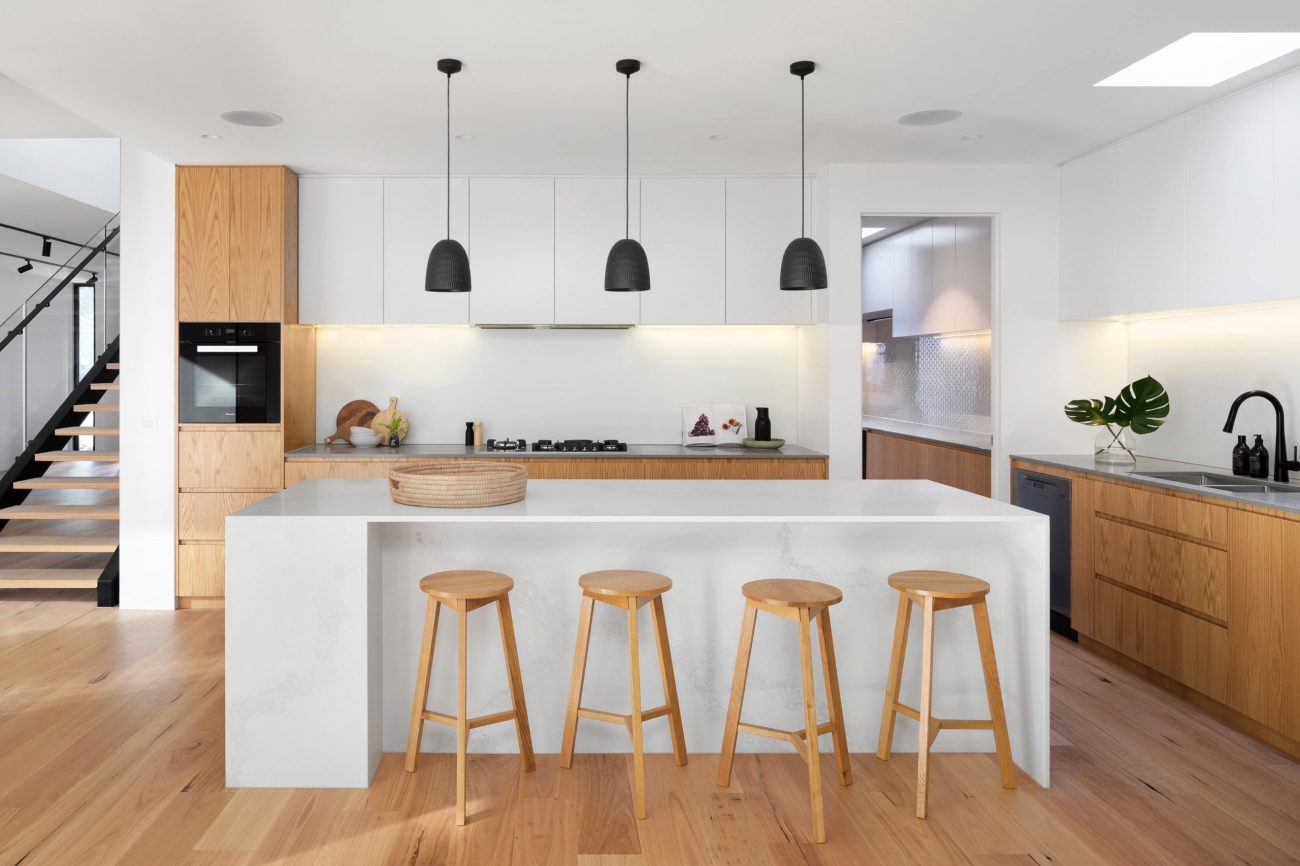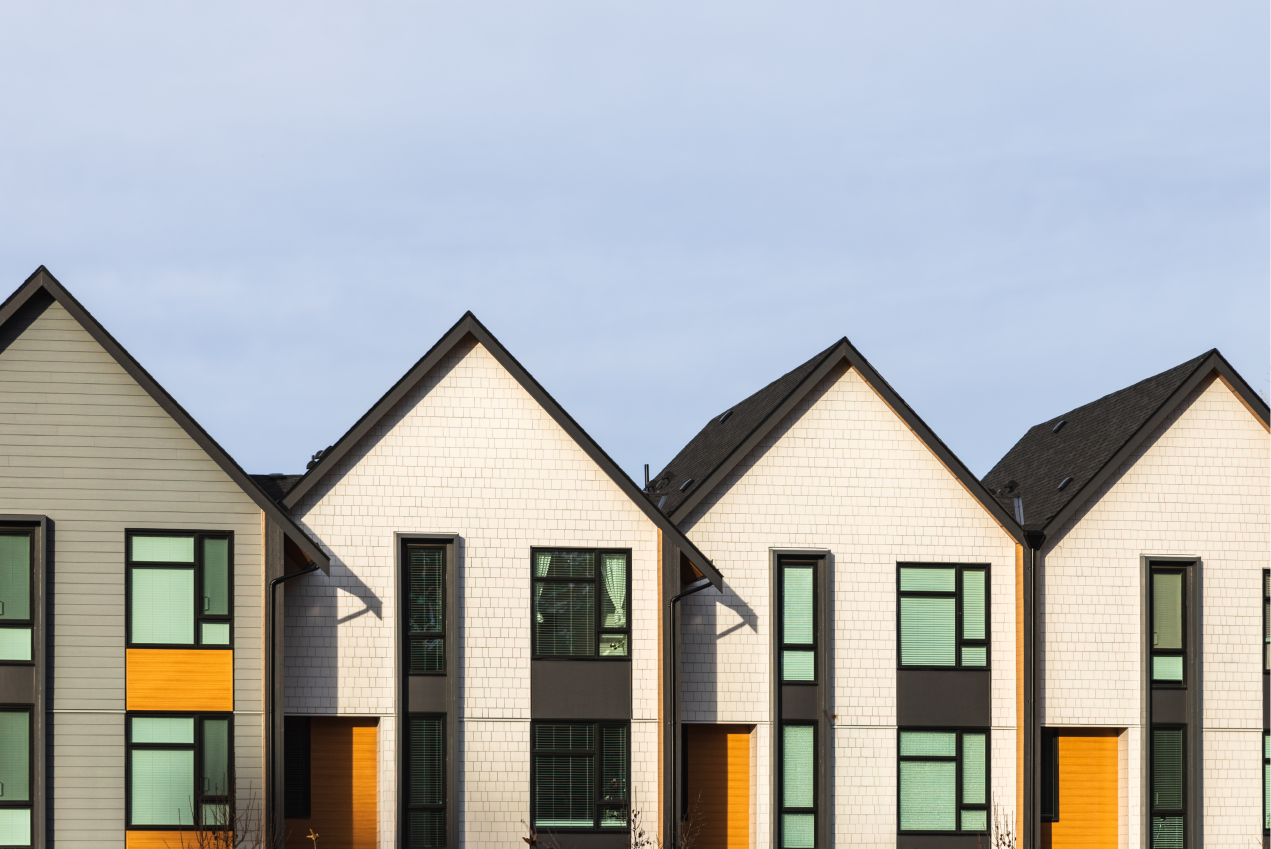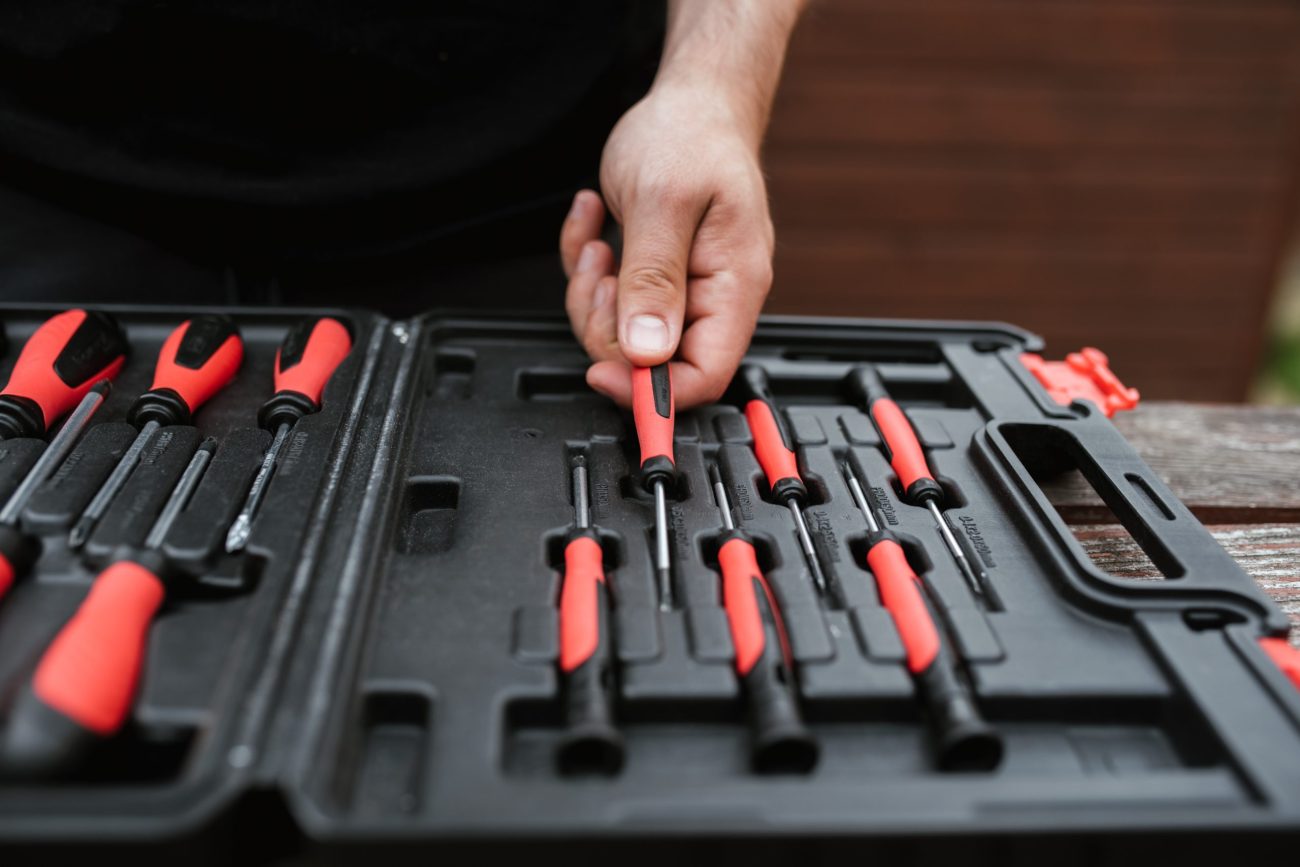If you’re looking to change your living situation, you may be wondering if renovating your current home or moving somewhere new makes more sense. Weigh your options, compare costs and consider possible outcomes to decide whether to renovate or buy a new home.
What is the problem you’re trying to solve?
Start by thinking about your end goal. Why are you looking to make a change? Would you like to upgrade, upsize, repurpose or relocate? Here are some of the potential changes in your circumstance that could require you to renovate or buy a new home.
- You would like more green space: If you’re hoping for more natural beauty in your living space, incorporating more greenery into your home can breathe new life into it, whether that’s by adding indoor plants or renovating your patio with plants, planters or even artificial turf. You may also want to consider whether there are green spaces within driving, walking or biking distance that you haven’t yet explored. But if those adjustments are not enough to satisfy your itch, you may want to consider a new home with a bigger backyard. .
- Your family is growing: Do you need more space to accommodate kids, a partner or elderly parents moving in? Consider whether more bedrooms, a larger kitchen, a play area or separate office space could make your home more comfortable for the extra people in your home. Renovating to add bedrooms, changing the function of existing rooms to accommodate more beds or moving to a home with more space could all be your answer.
- You have noisy neighbours, unsafe areas or traffic noise: Perhaps a home in a new neighbourhood would be safer or quieter, but before you take the leap, make sure you consider upgrades that can be made to your current home. For safety, look into an updated security system or fence installation. For a quieter home, try planting trees or vegetation to help soak up sound, insulating with sound-proof windows and doors or even having a candid conversation with any party-prone neighbours to see if there’s a friendly solution.
- You would like at-home office space or guest quarters: If your at-home business is expanding or you would like room for friends or family to stay, be sure to weigh the cost of renovations against the potential gains. Maybe you would rather pay the price of a hotel a few times a year than add an extra bedroom. Or perhaps you would consider making an office space dual purpose for the occasions you have visitors. Compare the effort and cost of converting garages or backhouses to that of a move.
- Your budget has grown: Perhaps you’re able to afford a nicer place or a better location than when you first purchased your home. Make a list of the features that appeal to you, and see if they could suit your current home. Before buying a new home you’ll also want to consider market conditions, like interest rates and inventory, to understand how far your boost in income can take you.
- You’d like an accessible home: Features like a wheelchair ramp, elevators or mobility aids can be added to your home, but a property that already has these features installed may save you money. If this is a priority for you, then your real estate agent will help you find options to consider.
- You’re going through a separation: If you’re parting ways with a partner, you might want your home to feel different than it did before. But before you jump to move, consider how a full renovation could add home value and make your place feel new to you.
Does it cost less to renovate or buy?
Market conditions like supply chain issues and local housing price fluctuations impact the price of moving vs. renovating your existing home.
Moving costs
- Moving comes with more costs than just the price of a new home. Consider agent fees for selling your existing home and buying a new one, closing fees, mover’s fees, legal costs, insurance costs, land transfer taxes and interest rates that are potentially higher on your new loan.
- Look up comparable home prices in the area you’re considering moving to, and get to know market trends and home values in the place you live now.
- What renovations are required to sell your home? Identify if you’ll need to paint, renovate or make changes in order to make your current home more valuable when selling.
- You’ll likely want to do some decorating, painting and renovating in a new home, even if it’s closer to your goals. Factor these costs into the equation.
Renovation costs
- Renovations almost always end up costing more than planned. When you start rerouting plumbing or ripping down walls in an older home, you might discover mould, rot or further renovations that need to be addressed.
- Get into the details of full renovation costs by getting quotes from contractors, asking about potential supply chain delays, and getting estimates of renovation time windows.
- Permitting and expansion bylaws can be expensive or restrict how you can modify a property. Find out what’s possible before starting a new project.
- Ask yourself how much value your specific renovations will add to your property. Will the upgrades be worth the cost if you choose to sell later on?
- Will your renovations cost you on an ongoing basis? Installing a pool or hot tub, adding extra bedrooms or enlarging your property can ramp up future heating or maintenance costs. Include these estimates in your budget.
What are the emotional factors involved in moving?
If you’ve lived in your home for a while, you’ve invested energy into your property and built memories there. Renovating and moving both come with a set of stress factors. Finding financing, making offers, finding a new home, closing on a home, overseeing renovations, hiring contractors, researching zoning specifications and supporting your family throughout a move all have their own stressors. Take time to consider how the time, effort and money will affect you and your family emotionally. Factors like changing schools, facing a longer commute, or living in a home that’s being renovated for a year or more can all affect your everyday life.
Questions to help you decide whether to renovate or buy
- What would your real estate professional or financial advisor recommend and why? Their advice can be invaluable since they’re experts on the market.
- How can you repurpose the space you already have? Could a den be made into an extra bedroom or a guest bedroom?
- Will your renovations match the neighbourhood you’re in? Updating your home with luxuries that don’t match the value of the neighbourhood you’re in can make it harder to sell at a price that matches what you’ve invested.
- Do the renovations you want to make already exist in homes for sale? Renovations give you control of the layout, finishes and updates that you want. But if those changes are already available, it may make sense to buy.
This article offers general information only and is not intended as legal, financial or other professional advice. A professional advisor should be consulted regarding your specific situation. While the information presented is believed to be factual and current, its accuracy is not guaranteed and it should not be regarded as a complete analysis of the subjects discussed. All expressions of opinion reflect the judgment of the author(s) as of the date of publication and are subject to change. No endorsement of any third parties or their advice, opinions, information, products or services is expressly given or implied by Royal Bank of Canada or its affiliates.
Browse the newest listings in your area
OJOHome Canada Ltd. (“Houseful”) is a wholly-owned subsidiary of Royal Bank of Canada
20 King Street West, 8th Floor
Toronto, ON, Canada, M5H 1C4
833-709-1946
IDX information is provided exclusively for consumers’ personal, non-commercial use and that it may not be used for any purpose other than to identify prospective properties consumers may be interested in purchasing. Information deemed reliable but not guaranteed to be accurate. Listing information updated daily.
Houseful is committed to ensuring accessibility for individuals with disabilities. We are continuously working to improve the accessibility of our web experience for everyone. We welcome feedback and accommodation requests, please submit them here.
The trademarks REALTOR®, REALTORS®, and the REALTOR® logo are controlled by The Canadian Real Estate Association (CREA) and identify real estate professionals who are members of CREA. The trademarks, Multiple Listing Service® and the associated logos are owned by CREA and identify the quality of services provided by real estate professionals who are members of CREA. Used under license.
Please use the following address to send referral payments:
Lockbox: OJOHome Canada Ltd. PO Box 9479, Stn A, Toronto, ON M5W 4E1
Lockbox Number: T09479C
® / ™ Trademark(s) of Royal Bank of Canada. Used under licence.




